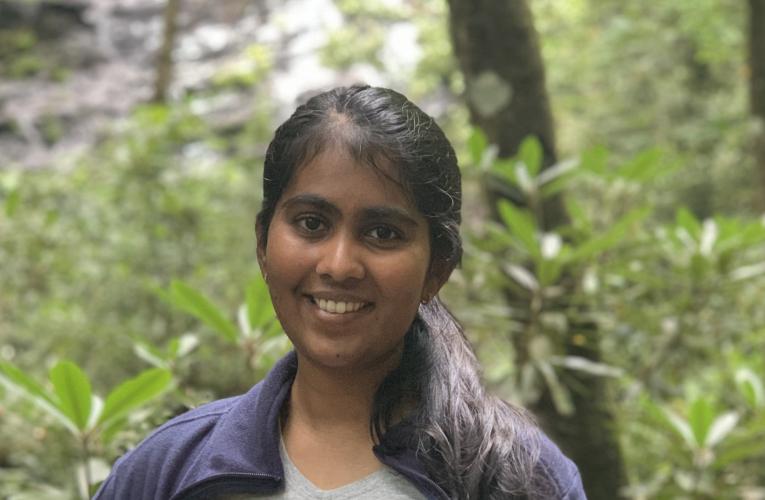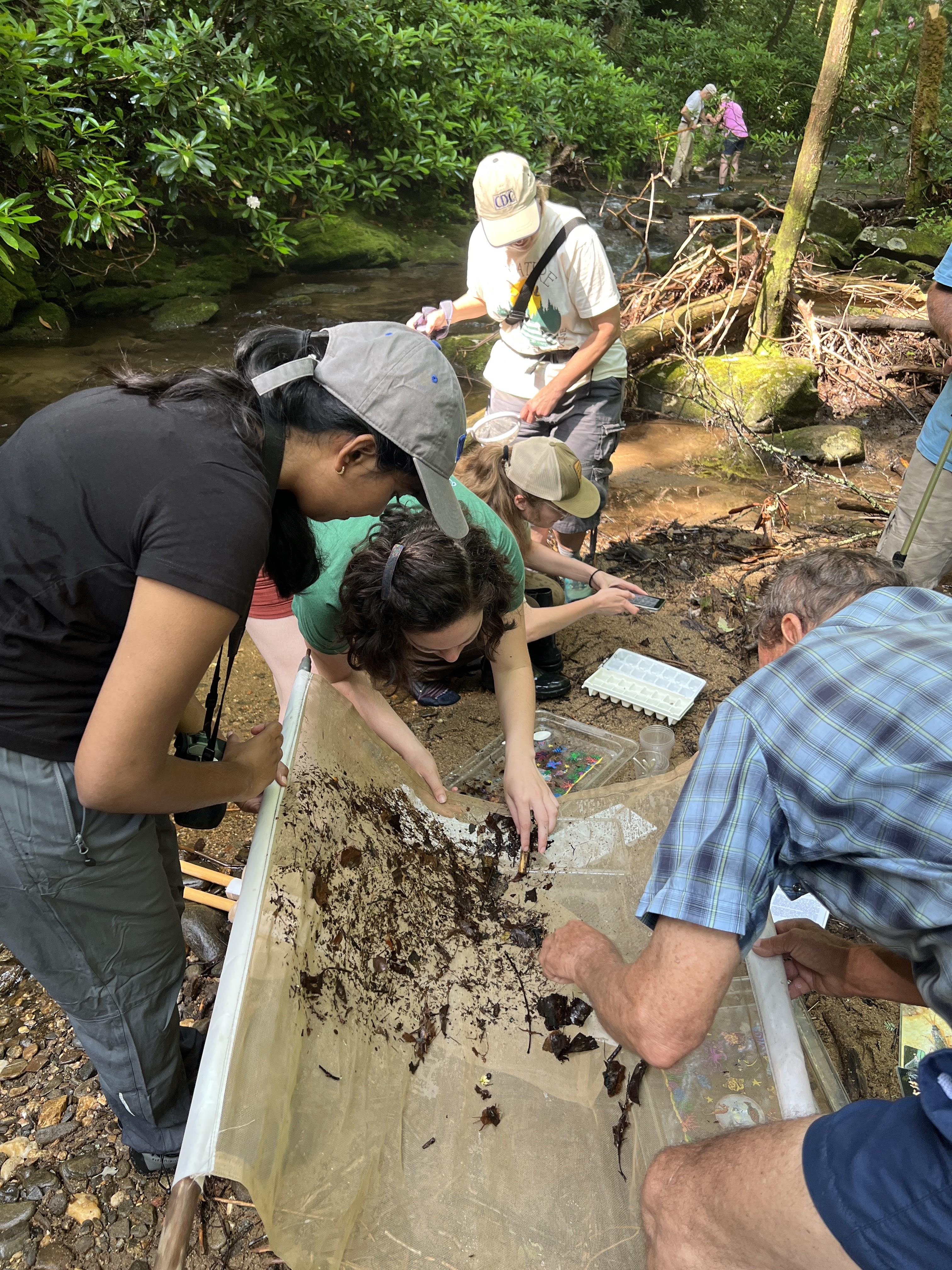Tim Lucas
(919) 613-8084
tdlucas@duke.edu
Natasha Jacob, a Master of Environmental Management student, spent her summer at The Wilderness Society as a Stanback Water Pathways Fellow.
Each year, Nicholas School of the Environment students complete internships with organizations around the world. These internships provide valuable opportunities to gain career-related experience and build a professional network.
Duke Environment recently caught up with Jacob to learn more about her experience.
WHAT ARE YOU DOING AT YOUR INTERNSHIP AND HOW ARE YOU USING THE SKILLS YOU'VE LEARNED AT THE NICHOLAS SCHOOL?
"At the Wilderness Society, I am working to build tools to communicate the need for conservation of the Chattahoochee River Basin and the importance of maintaining healthy headwater streams in the Chattahoochee National Forest in Georgia. The tools are being created with a focus to serve as an educational resource for communities in Georgia. This is to help create awareness about their most important water resource, the Chattahoochee River, which supplies about 70% of metro Atlanta’s drinking water. The need for developing these tools mainly stems from the introduction of the Chattahoochee River Act in the Senate by Sen. Jon Ossoff that will help improve water quality, protect essential public works, and restore ecosystems along the river.
Apart from developing communication tools and strategies, a major part of my internship has been focused on building partnerships with grassroots organizations and with Georgia’s federal delegation, to create opportunities that can better protect the river. Although my internship is remote, The Wilderness Society made it possible for me to visit Georgia twice and engage in outreach events with partner groups. While both visits were great experiences, a key highlight was helping organize and participating in a field trip to the Headwaters of the Chattahoochee River in the National Forest, with Georgia’s congressional staff and partner organizations. The field trip was a great way to engage in discussion about legislation surrounding protection of the river and the National Forest, the importance of improving water quality in this region, and the impact of the forest on the watershed. Another high point was participating in a stream ecology walk in the Chattahoochee National Forest, organized by our partner organization, Georgia ForestWatch. It was fascinating to monitor and learn about various kinds of macroinvertebrates and the crucial role they play in dictating water quality.
GIS (Geographic Information System), a skill that I learned at the Nicholas School, has been useful for me in this internship. I am currently working on developing an ArcGIS StoryMap that aims to tell the story of where Atlanta gets the majority of its drinking water from and how we need to think about the conservation and protection of this important water resource. GIS has also been useful in creating maps for outreach events and field trips."
HOW DID THE NICHOLAS SCHOOL HELP YOU DURING YOUR INTERNSHIP SEARCH?
"Deanna Knighton from the Career and Professional Development Centre (CPDC) was instrumental in my internship search process. Having one-on-one meetings with her as I worked on improving my application materials and prepared for interviews, helped me stay on track and also gave me a lot of confidence. The resume and cover letter writing workshops organized by CPDC and NSOE Communications Studio were also valuable resources that I greatly benefitted from."
HOW WILL THIS EXPERIENCE HELP YOU IN YOUR CAREER?
"While my background is in engineering, this experience has given me the exposure to gain a 360-degree approach to an environmental issue by allowing me to explore the communications and outreach angle.
An important theme in my internship has been about connecting communities to their water sources. While this has been my first time working on a community-focused environmental project, it has helped me realize the value that communities play in environmental advocacy and protection. A key takeaway for me is to also view environmental issues from a community standpoint and find creative ways in which communities can be involved.
Building relationships with congressional staff and partner organizations in Georgia and finally getting to work with them has taught me a great deal about partnerships and the importance of having support from various sources. I believe that these experiences will help me advance in my career as an environmental professional."

